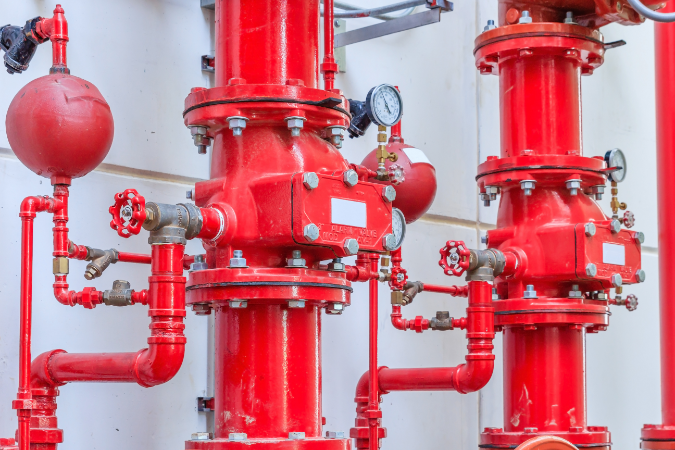
Room Integrity Tests Explained
When fire breaks out, your business needs effective measures to deal with the danger and minimise damage to property and assets. Fire suppression systems are designed to detect, control, and extinguish fires in premises where a sprinkler system would be ineffective or inappropriate, such as in buildings that contain large amounts of electrical equipment or assets that could be severely damaged by water.
However, discovering that your building’s fire suppression system does not perform correctly after a blaze breaks out could have devastating consequences. Therefore, a Room Integrity Test is essential. In this article, we’ll explain what a Room Integrity Test is and why it is beneficial.
What is a Room Integrity Test?
A Room Integrity Test is a procedure that assesses the air tightness of a room or enclosed space that is equipped with a fire suppression system. The purpose of the test is to ensure that the room can maintain the required concentration of suppression gas for a specified duration, typically to effectively suppress or extinguish a fire. This is achieved by pressurising or depressurising the room and measuring the rate at which the pressure changes.
For the test to be effective, the room must maintain the desired concentration of the suppression gas for a specified period of time. This indicates that, in the event that the fire suppression system is activated, the fire will be effectively controlled and extinguished. If the room is not sufficiently airtight, the gas may escape, reducing its efficacy and potentially compromising the safety of the occupants and property.
How Often Should A Room Integrity Test Be Performed?
Room Integrity Tests should be conducted at least once a year as a part of regular maintenance. Additionally, any construction work that may affect the air tightness of the room, such as drilling holes or installing cables, pipes, or ducts, should trigger a retest: this could result in alterations to the structure of the building that could allow suppression gas to escape.
Do Room Integrity Tests Improve My Business’s Compliance?
It is important for businesses to understand that not performing Room Integrity Tests may invalidate an insurance claim if the fire suppression system fails to effectively control and extinguish a fire. Regular testing demonstrates compliance with fire safety standards and helps to ensure the system's reliability.
What Are The Implications Of A Room Integrity Test Failure?
If a room fails the integrity test, it indicates that the space is not sufficiently airtight. In this situation, remedial action is necessary to identify and eliminate leaks to improve the room's air tightness. Following remedial work, a second test should be conducted to verify that the room meets the required standards.
Contact Rhino Fire Control For Specialist Fire Extinguisher Inspection And Maintenance
At Rhino Fire Control, our expert engineers can carry out reliable Room Integrity Tests to ensure your business’s fire suppression systems will operate effectively in an emergency.
To find out more about our services, please call us on 01278 422705 or message our fire safety consultants today.
Image Source: Canva




